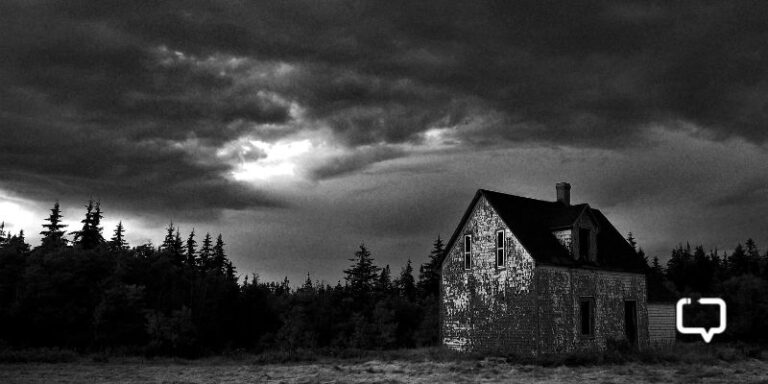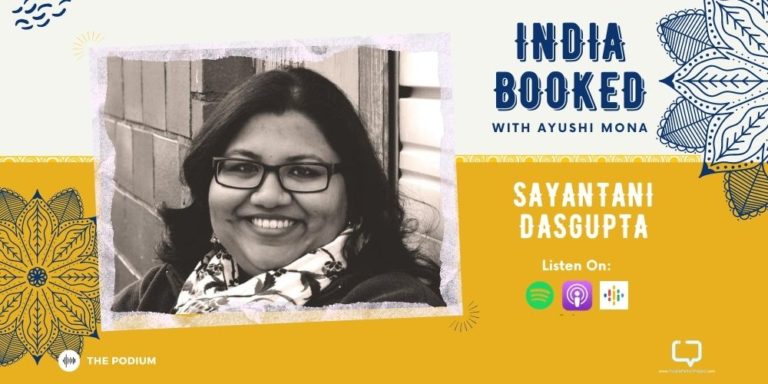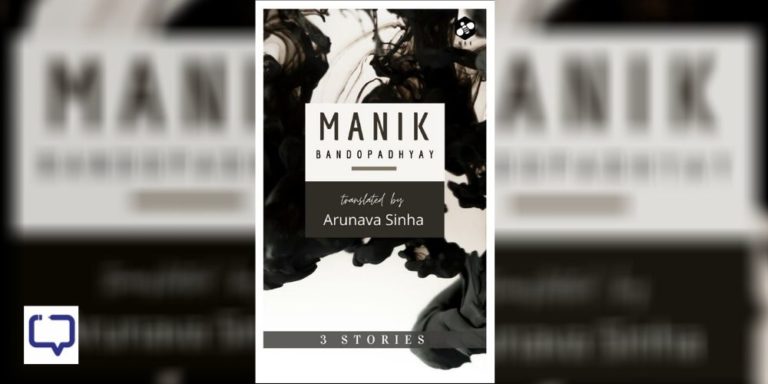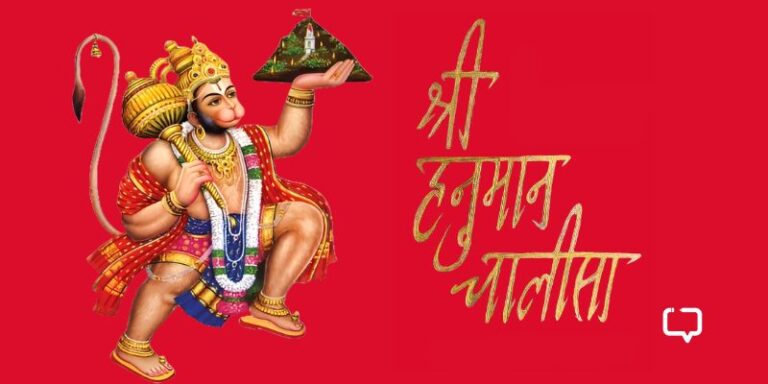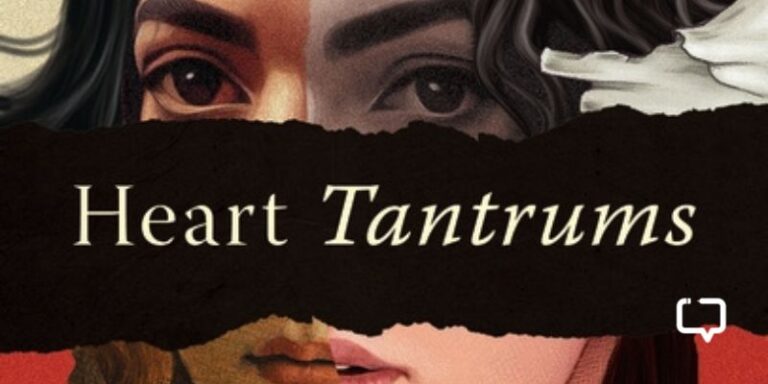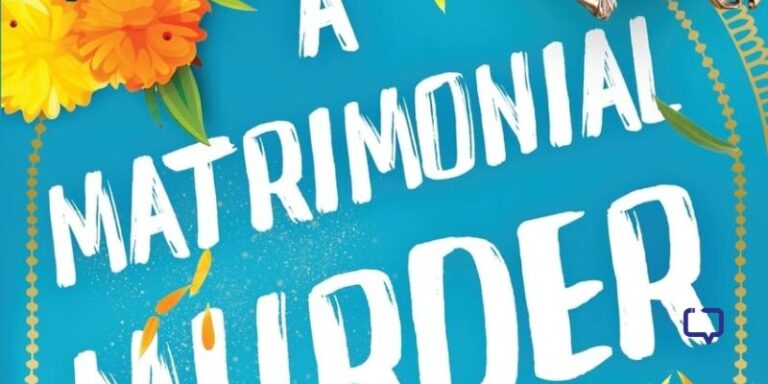Zoeb Matin reviews Without Benefit of Clergy by Rudyard Kipling from the collection Phantom Rickshaw and Other Eerie Tales.
There are six stories in the collection titled (for the most part, rather astutely) The Phantom Rickshaw and Other Eerie Tales and it is something of a testament to Rudyard Kipling’s versatility, at least, that the last two stories of the collection break boldly away from that description of being merely “eerie” tales of Englishmen encountering something mysterious or terrifying in the inexplicable, supernatural or even sinister atmosphere of India.
As it happens, of these six stories, it is these two that we still remember the most and with good reason. After a while, the encounters and experiences of ghosts and other not-so-easily definable elements in the town of Simla or even in bungalows and billiard rooms that may or may not be haunted wear a little thin. The familiarity of the scheme might even render the stories suspenseless; on the other hand, The Man Who Would Be King lives up to what J.M Barrie said of it.
Recommended Reading: Doctor Fischer of Geneva – A Timeless Tale Of Greed for Wealth and Death
In its wildly imaginative audacity, there are few rivals and by giving us a pair of raffishly charming loafers, who set out to become Kings of Kafiristan, by the sheer virtue of being Freemasons, Rudyard Kipling might even have given us a pair of characters more quotable and enduring than even Baloo or Bagheera.
Rudyard Kipling’s Style and Narrative Techniques
If we are to consider Kipling’s strengths and limitations, we have to confine our scrutiny purely to his storytelling abilities rather than his ideologies or racial opinions. Much of his short fiction, then, has a curiously quaint or even stilted air about it – the “journalistic style”, self-conscious, of narrating absurd and even horrifying incidents in a deadpan style does not quite work, and the author’s real gifts – of a simple yet stirring precision in his imagery and a fluid grace more suitable to verse than the hard, dry edge of his narration – are often undermined by this very self-consciousness, calling attention to its cleverness, rather than what Graham Greene called “the simple verbal music” of Rudyard Kipling’s descriptions.
As the author also remarked so astutely, Observation is ruined time and again by the pretence of personal emotion.

How would it have been if Kipling could have contented himself with his unashamedly romantic portrait of the country of his birth, as evidenced in his tales of animals, both wise and heroic, the poem Mandalay, the purely scenic and mesmerizing parts of Kim, or even the simple, sweet and ultimately sorrowful innocence of The Story of Muhammad-Din. Instead, he, in a fit of bravado, chose to foray into the terrain of horror and dark-edged hilarity (and even heavy-handed satire). Hector Hugh Munro was able to do it far more neatly and shrewdly than him, with his elegantly polished malice instead of Rudyard Kipling’s theatricality.
Indeed, Kipling could not have quite grasped the genius of Munro (or even Stevenson, for that matter). But something of a very real insecurity, fuelled by his unpleasant boyhood with the mercurial Aunt Rosa, must have led him to write his single most significant story of lasting greatness, much more than any of the stories in Plain Tales From The Hills or even the enjoyably diverting Just So Stories. That story is Without Benefit of Clergy, a story to be found at the end of this collection and one that is perhaps the eeriest or most elegiac of all his short fiction.
Without Benefit of Clergy
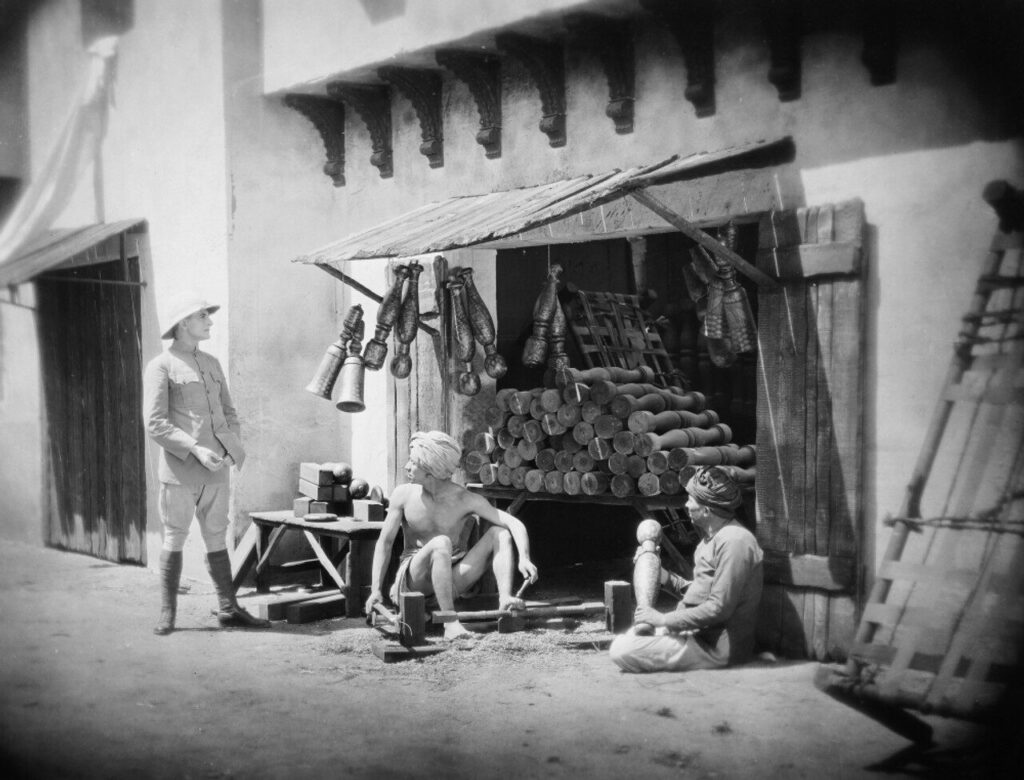
On the surface, Without Benefit of Clergy is not too dissimilar from Lispeth or Beyond The Pale – Rudyard Kipling’s earlier stories where the East is almost wedded to the West but with disastrous consequences. We know, from the beginning, that the marriage between the English civil servant Holden and the Muslim courtesan Ameera is doomed, despite its idyllic beginnings but what we cannot quite predict in this story, as opposed to the mundane or melodramatic events in other stories, is exactly how and when the blow would fall as the pendulum swings.
Unlike his other stories, Rudyard Kipling did not have to invent contrivances to turn the screw of the horror in the denouement – the story he tells is simple, unhurried, even unadorned of all his usual “journalistic pretensions” and is, therefore, the richer, more moving for it, even endowed by a prose style that is precise, evocative and even mesmeric, yet also shorn of the sometimes child-like play of words and phrases that mar the realism and resonance of his work.
Themes of Uncertainty and Tragic Fate

A key element of the story is uncertainty, apprehensive insecurity, and the paranoia of being tugged into different directions, which assaults Holden, as it must have to Kipling, repeatedly. He leads a double life between the guise of his bachelorhood and the more comfortable refuge of the house overlooking the walled city where his wife and child live. Even as Holden is more than happy about his life with Ameera and his son and prizes their welfare as, above all, one is aware, uncannily, that a time must come when fate will compel him cruelly to return to his own people.
He will go back to his own people in time,’ said the mother, “but by the blessing of God, that time is yet afar off.
– Rudyard Kipling, Without Benefit of Clergy
This is not very mysteriously similar to exactly what Mowgli, the man-cub, would feel eventually when his decisive departure from the Seonee Hills Wolf Pack would occur. Unlike Mowgli, however, Holden’s dilemma is graver, more tragic than even Kim’s debating whether he would follow Teshoo Lama in the Wheel of Life or continue to spy for Lurgan Sahib. Unlike him, Holden cannot simply quite so easily accept the harsh fate that awaits him in the end – the death of his son with Ameera to a fever and then, immediately, in its wake, the even more grievous death of Ameera herself to an epidemic of cholera that drives the last nail into the coffin of his short-lived bliss.
That Kipling is able to tell this unsurprising but no less horrifying turn of a cruel fate with such genuine conviction is largely due to how, for once, the author forsook his usual sardonic style of almost mocking the banality of affairs and trysts with a distinctly anecdotal style. That anecdotal style, so common and even usually effective in most fiction, never quite works in the hands of Rudyard Kipling because he could never quite maintain a distance necessary to render his fiction believable.
We are almost forced to suspend our disbelief and even concede that it is Kipling, the I of these stories, who has met these people or knows of their troubles and trials. But in Without Benefit of Clergy, as in The Story of Muhammad-Din, Kipling believes the veracity of the simple story sufficiently to tell it with conviction, so lacking even in his other short stories, which matured into something unexpected – a sense of empathy.
Why Without Benefit of Clergy Best Represents Kipling’s Legacy

More than any other story, Without Benefit of Clergy demonstrates Rudyard Kipling’s most lasting strengths as a storyteller. In Greene’s opinion, he had “enlarged the scope of English poetry to include the outer, un-English world…the exotic is naturalized”, and so, it is in this work of prose that the exotic aspects of Ameera’s life, even her attire, or the rituals of her faith are naturalized, with a touch of vivid detail.
“‘Strike!’ said Pir Khan. ‘Never life came into the world but life was paid for it. See, the goats have raised their heads. Now! With a drawing cut!’”
– Rudyard Kipling, Without Benefit of Clergy
Unlike the Maxims of Baloo and the Law of the Jungle, these rituals are not fantastic; rather, they are rooted in realism, in a social or communal rite and this way of life that Kipling can render naturally is what makes us believe in his story too. For once, too, his experience as a journalist of colonial India blends seamlessly into the third-person narrative voice, resulting in some of the most terrifying descriptions that he had ever written.
The people crowded the trains, hanging on to the foot-boards and squatting on the roofs of the carriages; and the cholera followed them, for at each station they dragged out the dead and the dying on the platforms reeking of lime-wash and carbolic acid. They died by the roadside, and the horses of the Englishmen shied at the corpses in the grass.
– Rudyard Kipling, Without Benefit of Clergy
“I am touched nearly to tears…and yet the tears don’t actually fall”, said Greene, summing up his opinion of Without Benefit of Clergy, and indeed, his assessment is accurate. Despite that measure of empathy, the closing passages of the story are almost cold-blooded in their cynicism – Ameera’s mother, unmoved by her daughter’s death, is more than eager to profit from it and in fate’s cruellest blow, Holden returns to the house, only to find it ravaged by Nature and his landlord Durga Dass advising him to let go of it.
The short-lived idyll of the early portions has already soured into bitterness, led by omnipotent forces at work to make more room in the overcrowded earth. “Perhaps Kipling never wrote better than when he wrote out of hate”, concluded Greene and Without Benefit of Clergy ranks as Rudyard Kipling’s finest short story precisely because, much more than a story of doomed love, it is a story of anguished hate, not of the country of his birth even as where “everything is taken away”, but rather of Nature who chooses to “audit her accounts with a red pencil.”










